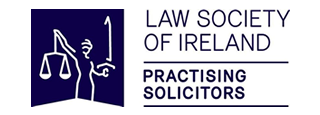What is a Grievance?
A grievance is a concern, problem or complaint which an employee raises with their employer and could relate to any aspect of their working life. Unison, the second largest Trade Union in the UK highlights that some of the most common grievance issues relate to:
- Pay and working conditions
- Terms of employment and workplace rules
- Disagreements with co-workers
- Allegations of unfair treatment at work
Dealing With Grievances in the Workplace
There is no legally binding process that employees or employers are bound to follow when raising or handling Grievances in the Workplace, but a key source of reference exists to aid employers and employees:
- The Labour Relations Agency (LRA) Code of Practice on Disciplinary and Grievance Procedures
Employees and employers can contact a number of bodies for help and to discuss their cases including:
-
- An employment law solicitor – the majority of these will also provide an initial free consultation.
- Labour Relations Agency – the LRA offer pre-claim conciliation, and free confidential and impartial advice on all employment issues. Call the LRA helpline on 028 9032 1442 (The Labour Relations Agency is a Non-Departmental Public Body in Northern Ireland responsible for promoting the improvement of industrial relations).
- If you are a Trade Union member, you can contact your Trade Union representative for advice. (A trade union is an organised association of workers in a trade, group of trades, or profession, formed to protect and further their rights and interests).
- Citizens Advice Northern Ireland also provide free and impartial advice. (Citizens Advice is a network of 316 independent charities throughout the United Kingdom that give free, confidential information and advice to assist people with money, legal, consumer and other problems).
- Your company’s HR Manager or an independent HR Consultant
It is advisable to seek professional advice at an early stage in the complaints process as these bodies or individuals can provide honest and impartial advice, and advise you on how best to deal with the situation to secure the most favourable outcome.
Steps in the Grievance Process.
In the event of a grievance occurring there are a number of principles and steps in the process that should be observed. These include:
- Speak Up and Make the Issue Known – in the first instance an employee should speak to their supervisor or manager. In many cases the issues can be resolved by making the other party aware of the issue and talking it through, but sometimes this doesn’t work and it is necessary to make a formal complaint in writing. For advice on doing this, an employee should refer to the company’s procedures for making a complaint, often outlined in the company handbook, human resources or personnel manual, their employment contract or other company sources of reference such as the company’s intranet site. Employers should have such documentation in place, but if not, the LRA Code of Practice provides guidance.
- Investigation and Interviews – The employer should arrange an initial meeting with the member of staff who has made a complaint to attempt to establish the facts. More than one meeting may be necessary. The employee should also be advised of their statutory right to bring someone to the meeting, such as a colleague or trade union representative who can sum up their case, speak on their behalf and speak to the complainant during the hearing. They cannot however answer questions for them. Employer investigations could include interviews with other members of staff, if deemed necessary to establish facts.
- Decision in Writing – an employer should convey their response to the complaint in writing as soon as possible after the investigative process, and outline their decision and any actions they plan to take, resulting from the complaint.
- Appeal – an employee should be able to make an appeal in writing if they are unhappy with the decisions made by their employer. The employee should state their reasons for the appeal clearly in writing. The timeframe for making an appeal should be detailed in your employer’s written procedures.
- Appeal Meeting – another meeting should be arranged to discuss the employee’s appeal. If possible, a different and more senior manager should deal with the appeal. Again, employees have the right to bring a companion. After the meeting, the employer should write to the employee with details of their final decision on the matter.
- Early Conciliation – in cases where the employee is still not happy with the final decision of the employer and they wish to pursue the matter further, they can consider pre-claim conciliation procedures and/or industrial tribunals. The Labour Relations Agency referred to above run a free and confidential service which aims to resolve disputes before they go to an industrial tribunal.
It is hoped that you will not find yourself with Grievances in the Workplace where you require legal advice on grievance and disciplinary procedures. However, if you do, please do not hesitate to contact law@lukecurran.co.uk or 02830267134 for advice.
Luke Curran & Co Solicitors, Newry will provide an initial free consultation, in a sensitive and supportive manner. We are here to help both employers and employees.







